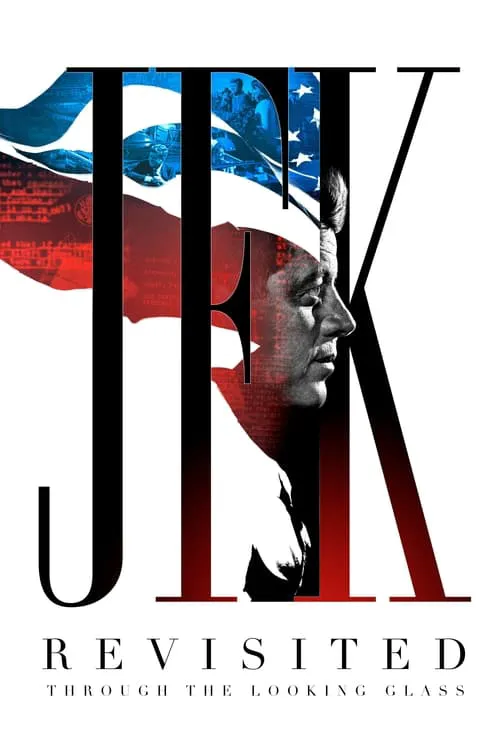JFK Revisited: Through the Looking Glass

Plot
JFK Revisited: Through the Looking Glass is a thought-provoking documentary directed by Oliver Stone, a filmmaker known for his unflinching examination of historical events and government conspiracies. Thirty years after the release of his highly influential film JFK, which probed the assassination of President John F. Kennedy, Stone once again delves into the mysteries surrounding the Dallas event. This latest endeavor, JFK Revisited: Through the Looking Glass, marks a significant chapter in the ongoing search for truth regarding one of the most pivotal moments in American history. The documentary begins by revisiting the circumstances surrounding Kennedy's assassination on November 22, 1963. Stone meticulously reconstructs the events of that fateful day, drawing from the latest declassified evidence and newly available files. He examines the Warren Commission's findings, which concluded that Lee Harvey Oswald acted alone in shooting the president. However, Stone and his team present a more complex and intriguing narrative, piecing together a puzzle that has been hidden in plain sight for far too long. One of the central threads of the documentary is the role of the Central Intelligence Agency (CIA) and the Federal Bureau of Investigation (FBI) in the events leading up to the assassination. Stone highlights the CIA's involvement with organized crime and the Bay of Pigs fiasco, which created an enormous backlash against the Kennedy administration. He also delves into the FBI's alleged complicity, citing evidence of their failure to adequately investigate the murder scene and potential connections between Oswald and organized crime figures. The documentary also sheds light on the mysterious figure of Clay Shaw, a New Orleans businessman and alleged CIA asset who was mentioned in the original JFK film. According to Stone, Shaw was involved in a plot to assassinate Kennedy, and his connections to the CIA and organized crime warrant further investigation. Furthermore, Stone presents new evidence suggesting that Shaw's murder in 1974 was orchestrated by the government to silence him and cover up the agency's involvement in the assassination. Another pivotal figure in the documentary is E. Howard Hunt, a CIA operative who was involved in the Bay of Pigs and had connections to organized crime. Stone reveals that Hunt admitted to being involved in the Kennedy assassination in his 2007 memoir, though his account has been disputed by his estate. Despite the controversy surrounding Hunt's claim, the documentary suggests that his involvement was real and deserves closer examination. The documentary also examines the role of the government's own records and cover-ups in the Kennedy assassination. Stone reveals newly declassified documents that expose the administration's attempts to conceal the truth about the assassination, including the infamous "Cuban Exile" operation, which some believe had ties to the CIA and organized crime. He also discusses the government's handling of the autopsy and the subsequent destruction of key evidence, which has fueled conspiracy theories for decades. One of the most compelling aspects of JFK Revisited is its examination of the psychological and emotional impact of the assassination on those closest to the president. Stone interviewed many witnesses and participants, including some who have never spoken publicly about their experiences. Their testimonies paint a poignant picture of a nation in trauma, struggling to make sense of the devastating loss of its leader and the subsequent cover-up that followed. Throughout the documentary, Stone's trademark tenacity and skepticism drive the narrative, often leading to conclusions that challenge the official story. He presents his evidence in a methodical and objective manner, relying on credible sources and newly declassified records to support his claims. While some may critique Stone's methods as being overly speculative or biased, his commitment to uncovering the truth has undoubtedly sparked critical thinking and debate about one of the most enduring mysteries of our time. Ultimately, JFK Revisited: Through the Looking Glass invites viewers to scrutinize the evidence and engage in a critical examination of the events surrounding the Kennedy assassination. Despite the controversy and uncertainty surrounding this event, the documentary offers a compelling case for re-examining the government's involvement and exploring the possibility of a larger conspiracy. As Oliver Stone himself notes, "the truth is not in the official story, but in the evidence, the inconsistencies, and the contradictions." By shedding new light on this troubled chapter in American history, JFK Revisited: Through the Looking Glass serves as a call to arms, urging citizens to demand transparency and accountability from their government.
Reviews
Recommendations




